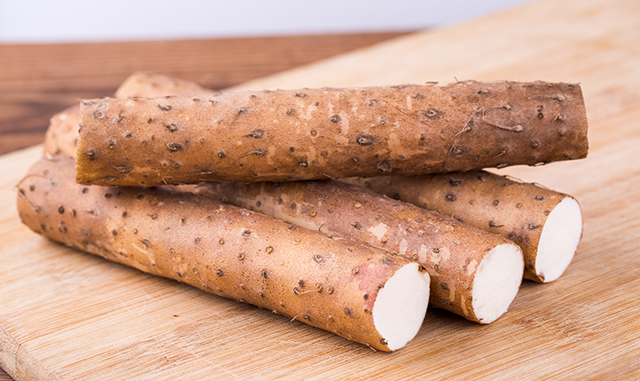
Chinese yam, which is widely distributed in East Asian countries, is used in traditional medicine for its powerful antioxidant and anti-inflammatory properties. Earlier studies have shown that Chinese yam bark powder can boost antioxidant enzyme activity and cause an anti-inflammatory effect in drug-induced liver injury or colorectal cancer in rats. The current study, which was conducted by researchers from Kyungpook National University and Gyeongsangbuk-do Forest Research Institute in South Korea, examined the effect of ethanol extract of Chinese yam bark on inflammatory damage in colon epithelial cells and in an acute colitis mouse model.
The treatment of Chinese yam bark extract reduced nitric oxide production and pro-inflammatory protein expression in cells. It also reduced the level of reactive oxygen species in cells. In mice, the Chinese yam bark extract reduced dextran sulfate sodium (DSS)-induced acute colitis. These results show that oral supplementation with Chinese yam bark extract could boost the antioxidant activities in colonic epithelial cells and reduce the inflammatory response in activated macrophages, treating acute colitis in mice.
From these findings, the researchers conclude that Chinese yam bark can be considered as a medicinal food for preventing or treating inflammatory conditions. These findings are important as natural treatments for IBD are needed as conventional treatments used for colitis cause many side effects and have high relapse rates.
Ulcerative colitis causes long-lasting ulcers along the surface of the large intestine and rectum. These result in debilitating pain, diarrhea, bleeding, a feeling of urgency but the inability to defecate, weight loss, fatigue, and fever. In children, it can also harm their growth and development. (Related: Prickly superfood: The juice of this cactus has antioxidant and anti-inflammatory properties that reduce colon damage from ulcerative colitis.)
More on Chinese yam
Chinese yam, also known as cinnamon vine and shan yao, is used in Chinese herbal medicine to treat problems related to the stomach, spleen, lungs, and kidneys. It can help treat asthma, chronic diarrhea, diabetes, dry coughs, frequent urination, and poor appetite. This ornamental vine contains a natural compound called allantoin, which can speed up the growth of healthy tissue and shorten healing time. It can be topically applied to treat ulcers, boils, and abscesses on the skin. The juices of its leaf can also be used as a natural remedy for scorpion stings and snakebites. Its roots contain diosgenin, which is a natural, plant-based estrogen. Chinese yam can be eaten raw, baked, boiled, fried, mashed, or in soup. Chinese yam is also available in liquid, capsule, dried root, extract, or tea forms.
The potential health benefits of Chinese yam have also been scientifically studied. In a study published in the Archives of Pharmacal Research, researchers found that Chinese yam extract aids in digestion and helps turn some gut flora into beneficial bacteria. This medicinal plant also has antioxidant properties and contains trace amounts of zinc, manganese, iron, copper, and selenium, according to a study in Preventive Nutrition and Food Science. Another study revealed that it can also help with diabetes and improve kidney and liver function. Additionally, it has the potential to help prevent atherosclerosis, which occurs due to plaque buildup in the arteries. Chinese yam also provides nutrients, such as vitamins B1 and C, mucilage, amylase, amino acids, and glutamine.
Sources include:
Please contact us for more information.























